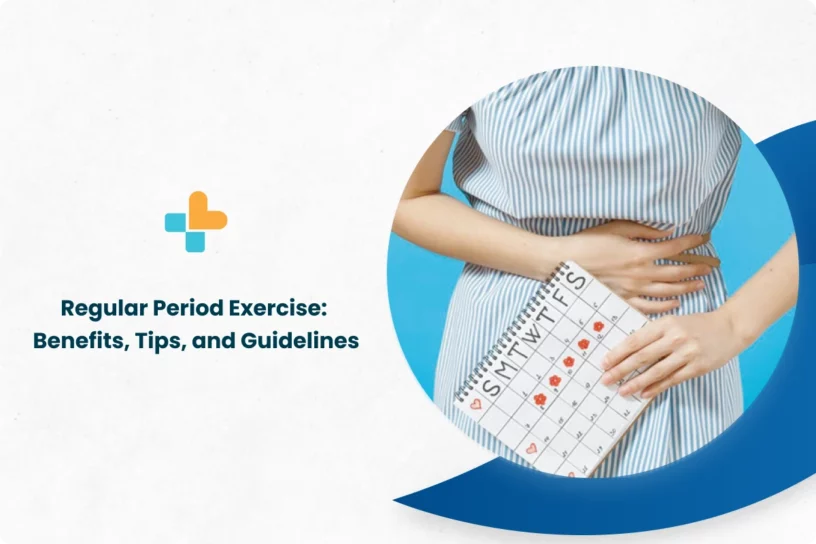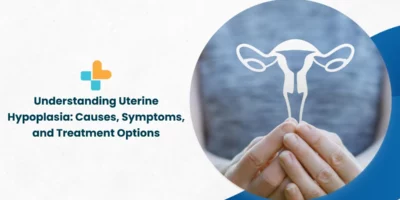Exercising during your menstrual cycle may seem unappealing when you experience discomforts such as bloating, cramps, and exhaustion. Nevertheless, engaging in physical activity during this period can have positive effects on both your mental and physical state, such as improving your mood and reducing cramps.
However, it’s important to remember some tips to make exercising more pleasant and to recognize when your body requires rest. Ultimately, staying active can make that time of the month more bearable.
The Benefits of Working Out on Your Period
Working out during your menstrual cycle may not be your first choice, but the potential benefits may be worth considering.
Engaging in physical activity during your period may help alleviate painful menstrual cramps. Research conducted in 2019 shows that 45 to 60 minutes of moderate-intensity exercise, such as brisk walking and yoga, at least three times per week, can significantly reduce the intensity of menstrual cramps. Exercise can stimulate the release of beta-endorphins in your blood, which can help block pain signals.
Additionally, exercise can help reduce other menstrual symptoms like fatigue, bloating, and tender breasts. Exercise increases blood flow and decreases levels of aldosterone, a hormone that signals your body to retain salt and water. Moreover, physical activity increases the production of anti-inflammatory compounds, which are effective in reducing bloating and tenderness.
Exercising can also boost your mood by releasing feel-good endorphins and neurotransmitters like dopamine, promoting positive thoughts and feelings. A review of 17 studies conducted in 2020 concludes that exercise is effective in reducing psychological symptoms of premenstrual syndrome (PMS), including anger and anxiety. Additionally, research shows that staying active during your period can help balance your mood.
Consistent exercise can also help regulate your menstrual flow by promoting optimal hormonal balance and maintaining a healthy body weight. A small study conducted in 2021 found that women who avoided exercising during their menstrual cycles reported longer periods, heavier flows, and increased fatigue and cramping compared to those who worked out during their periods.
What all exercises can one do during periods?
It’s your decision whether or not to exercise during your period based on how you feel. If you do decide to exercise but feel low on energy, it might be wise to decrease the intensity of your workout. If you prefer to stay active during your menstrual cycle without engaging in rigorous activities, here are some recommendations.
- Relaxing yoga poses or stretching
- Walking or light cardio
- Lighter strength training
What exercise must be avoided during periods?
It’s important to listen to your body during your period and adjust your exercise routine accordingly. It’s generally not advisable to push yourself too hard if you’re feeling fatigued.
Engaging in high-intensity workouts on a regular basis, such as long-distance running, may disrupt your menstrual cycle and potentially cause you to miss periods or stop menstruating altogether.
Hormonal fluctuations can affect energy levels differently for everyone, so keeping an exercise journal can help you determine when you have more or less energy during each phase of your cycle.
If your energy is low, it may be better to opt for low-impact activities like walking or yoga.
When to Visit a Doctor?
It’s common to experience period-related symptoms such as bloating and cramping, but if these symptoms are regularly preventing you from participating in activities you enjoy, it may not be normal.
It’s important to consult a doctor if your period symptoms are severe and impacting your fitness routine. This can help to rule out potential underlying causes such as endometriosis, a gynaecological disease that causes inflammatory symptoms like intense pelvic pain during menstruation. Other conditions that can cause severe period symptoms include polycystic ovarian syndrome (PCOS), uterine fibroids, and pelvic inflammatory disease.
You can schedule your appointment with our doctor today. Our team of experts at Ayu Health is always there to provide appropriate medical treatments, including medications, to improve your quality of life if your period symptoms are significantly affecting you.
Conclusion:
Choosing to exercise during your menstrual cycle is a personal decision that should be based on your own feelings and preferences. What’s important is that you make the right choice for yourself.
Our Hospital Locations
Gynaecology Surgery Hospitals in Chandigarh | Gynaecology Surgery Hospitals in Bangalore | Gynaecology Surgery Hospitals in Jaipur | Gynaecology Surgery Hospitals in NCR | Gynaecology Surgery Hospitals in Hyderabad
Our Doctors
Gynaecology Surgery Doctors in Chandigarh | Gynaecology Surgery Doctors in Bangalore | Gynaecology Surgery Doctors in Jaipur | Gynaecology Surgery Doctors in NCR | Gynaecology Surgery Doctors in Hyderabad
About the Author

Dr. S. Goel
Dr. S. Goel is a renowned Internal Medicine Specialist currently practicing at Ayu Health, Bangalore. He is a Specialist in Internal Medicine, Diabetes HTN, Paediatric Care, and Family Medicine.




